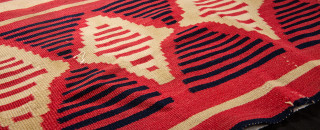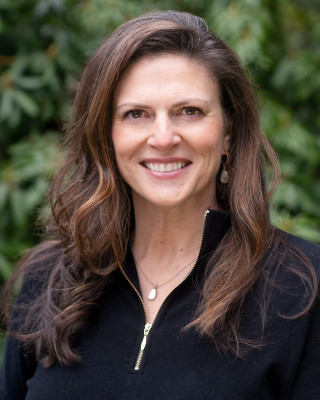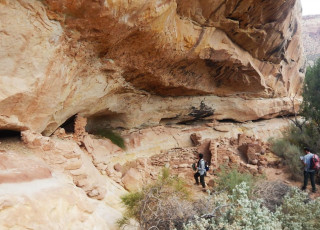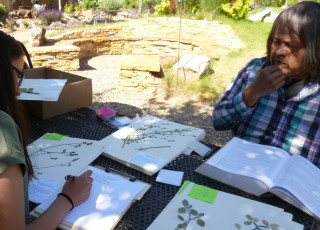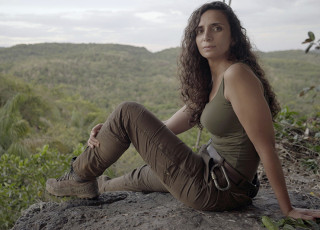Celebrating 70 years of The Great Basin Anthropological Conference
Learn more about women leading research in the field of anthropology at NHMU's inaugural Women in Nature & Science celebration on Saturday, February 10.
By Dr. Lisbeth Louderback
The Great Basin Anthropological Association (GBAA) is a professional organization for the study of peoples and cultures of the western United States. It represents anthropologists working in government agencies, academic institutions, Tribal agencies, museums, the private sector, and students in colleges and universities. The GBAA promotes communication and research by coordinating the biennial Great Basin Anthropological Conference (GBAC).
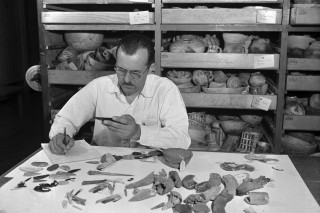
Jennings examines artifacts in collections.
The first GBAC was organized by Jesse Jennings in 1954 at Gila Pueblo in Globe, Arizona. From 1948 – 1986, Jennings was a professor in the Anthropology Department at University of Utah and was the first director of the Natural History Museum of Utah. According to Don Fowler, a student of Jennings, the conferences were run de facto by a bunch of the “guys” who held informal meetings in whatever hotel bar was available. They informally figured out where the next conference would be held and volunteered another “guy” in absentia to chair it. This was how things were run for 40 years.
Eventually, this form of governance did not sit well with the increasingly large number of women anthropologists who attended the conferences, but not the discussions in the bar. It came to pass at the 1994 conference in Elko, Nevada that a group of women (Catherine Fowler, Charlotte Beck, Loranne Pendelton, Melinda Leach, just to name a few) decided to meet behind closed doors and proclaim Charlotte Beck as the next conference chair in Lake Tahoe, CA. And it was during that 1996 meeting that an agreement was reached to incorporate. This was finalized by 1998 and Max Pavesic served as the first GBAA president.
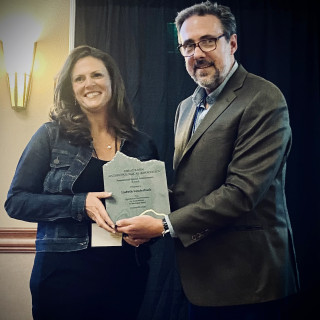
Louderback is presented with an award by the GBAA at the same conference where she was elected as president of the association.
Although the conference origins were decidedly masculine, the professional association rose from the dust of a women’s revolution—the insistence of equality in a discipline with increasingly feminist participation. At the 1954 GBAC women contributed 10 percent of first-authored papers. This year marks a 70th anniversary with women comprising half of the GBAA Board and contributing 50 percent of the first-authored papers at the Bend conference.
I am indebted to all these women because it paved the way for me to have a fulfilling professional career as an anthropologist and to eventually serve as the first woman president of the GBAA.
Learn more about women leading research in the field of anthropology at NHMU's inaugural Women in Nature & Science celebration on Saturday, February 10.
